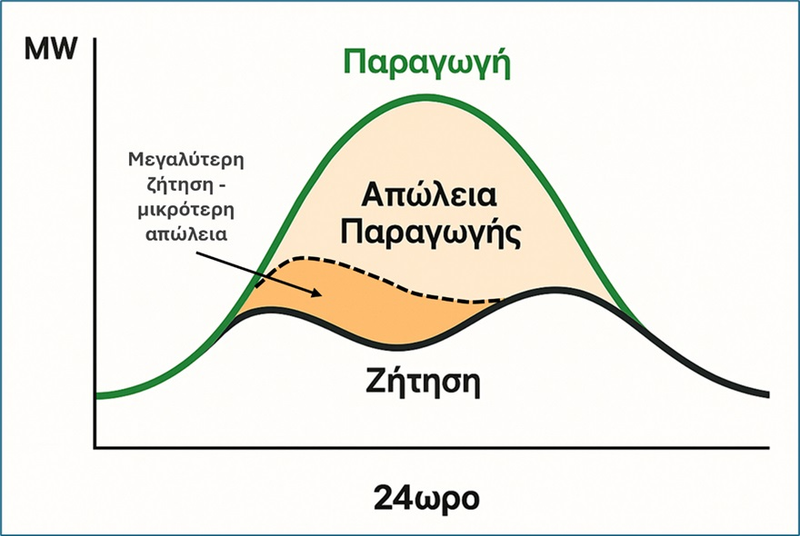Ηλεκτρική Ενέργεια: Από το θαύμα στον γρίφο της υπερπαραγωγής

In 2024 and 2025, part of the solar energy produced was not consumed. IPTO, the Independent Power Transmission Operator, was forced to impose restrictions on production, resulting in the loss of valuable kilowatt hours. This phenomenon, known as curtailment, is due to the intermittent nature of RES and the inability of the grid to manage production peaks. When it is windy or sunny, production exceeds demand, and the surplus is rejected. There are many reasons for this: limited connection of installations to the grid, saturated cables, and inadequate mass electricity storage technology. During periods of low production, regulated sources such as hydroelectricity and lignite, but especially imported natural gas, and nuclear energy for countries that produce nuclear energy, cover the needs.
There are many solutions to overcome these peaks. Firstly, encourage electricity consumption during off-peak hours, especially in the afternoon during the summer. But billions of euros will be needed to adapt infrastructure to strengthen interconnections, manage thousands of production sites, develop storage, and modernize the grid so that it can better withstand fluctuations. This will lead to a review of the tariffs issued by the operator and an additional burden for consumers.
At present, the losses caused by peak demand do not appear to be decreasing, and electricity is no longer just a miracle; it is also a puzzle that we must solve until wind and solar power can generate electricity at marginal cost.
Γιάννης Μπασιάς: Ηλεκτρική Ενέργεια: Από το θαύμα στον γρίφο της υπερπαραγωγής
GRTIMES - Έλλάδα - Ηλεκτρική Ενέργεια - :Αύγουστος 4, 2025
Yannis Bassias – Selected parts translated in English from the original article in Greek